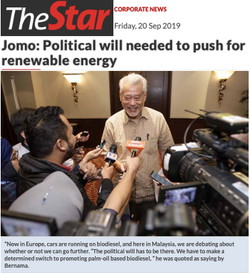- Jul 29, 2025
- 4 min read
Admin's note: This is a corrected version of the article, which originally appeared on IPS on 29 July here.
KUALA LUMPUR, Malaysia, Jul 29 2025 (IPS) - US President Trump has successfully used tariff threats to achieve economic, political and even personal goals. These threats, reminiscent of colonialism, have secured submission and concessions.
Indonesian template?
After hearing the 2024 US election results, Indonesian President Prabowo Subianto respectfully stood up in his Jakarta office to call to congratulate the winner.
Trump bragged about his tariff offer to Indonesia in mid-July 2025, profusely flattering its president. After initially hesitating, former General Prabowo agreed to join BRICS despite Trump’s clear disapproval.
“I spoke to their really great president, very popular, very strong, smart. And we made the deal. We will pay no tariffs … they are giving us access to Indonesia … the other part is they are going to pay 19% and we are going to pay nothing.”
An Indian commentator noted, “Those words say it all. This deal is clearly one-sided, and it should bother the whole world.” Americans, not Indonesians, will pay tariffs on imports from Indonesia.
The US is Indonesia’s second-largest export market, importing apparel, palm oil, footwear, and cosmetics. Initially, Trump had threatened a 32% tariff on such imports.
This has been reduced to 19%, still almost four times more than last year! In 2024, Indonesian exports to the US were taxed at 5% on average. The Indonesian president has not complained but instead seemed relieved.
Indonesia will lose not only exports, but also growth and jobs. As Trump loves to brag, he added insult to injury as he could not resist reiterating: “They will pay 19%, and we will pay nothing.”
Guaranteed sales
Indonesia will also buy $15 billion of US oil and gas, $4.5 billion of farm produce, and 50 Boeing jets. But the 2019 Lion Air plane tragedy, which the US plane manufacturer quickly blamed on Indonesian pilots, is still alive in the national memory.
Boeing’s reputation worldwide has not recovered from the investigation into the Nairobi air crash involving the same plane model, which led to its grounding.
Indonesia is among the US’s top 25 trade partners. The deal secures American access to the Indonesian market, allowing US goods to be sold tariff-free.
Last year, Indonesia shipped $28 billion worth of goods to the US. Higher tariffs are now expected to cut Indonesian exports by a quarter, GDP growth by 0.3%, and many jobs!
Other Southeast Asian lessons?
The Philippines’ Marcos II government is the most pro-US in Southeast (SE) Asia, hosting 11 American military bases.
Yet it was the only one without a US tariff offer before Secretary of State Rubio’s SE Asian visit earlier this month. The Philippines has since been offered a new US trade deal with the same 19% tariff rate despite its loyalty to Washington.
Loyal long-term support for the US, 11 military bases and serving as an additional ‘unsinkable aircraft carrier’ just south of Taiwan did not secure a better trade deal for the other archipelagic nation in SE Asia.
Trump wants trade deals even more favourable to the US than existing ones. With deadlines passing, the US is expected to announce more trade deals.
The tariff threats have been more effective for Trump, thanks to decades of trade liberalisation forced on the Global South, undermining earlier import-substituting industrialisation and food security measures.
Washington has already revised earlier demands, sometimes not just once, but typically to the chagrin of US trade partners. Vietnam’s Communist Party leader was initially thought to have negotiated a better deal than other SE Asian governments.
Lessons for others?
Will the US offer to Indonesia become a template for others? Or even for countries of comparable significance in the world economy? Nobody knows Trump’s strategy, let alone how it may still change.
Perhaps it begins with the threat of high tariffs, shock and awe. Then, a less painful deal is offered, dressed up as a concession.
This may be worse than the status quo ante, but it still seems preferable to the original threat. Nations will also be required to buy US goods that may not be needed or offer the best value for money.
Thus, US offers to SE Asia are being studied worldwide for lessons on better negotiating with Washington. Meanwhile, the US refuses to negotiate collectively except with the European Union.
All over the world, policymakers will continue to debate Trump’s tariff war strategy after Monday’s agreement in Scotland, which included a 15% baseline tariff on most EU exports to the US.
The US-EU deal makes clear the West, including Europe, has never really been committed to a rules-based international order, including multilateral trade liberalisation.
As American buyers pay the tariffs, imported goods become more expensive. US trading partners will lose exports, related growth and jobs. This will mean less expansion, employment and exports worldwide, deepening stagnation.
Meanwhile, most SE Asian governments believe they have little choice but to continue negotiating with the US, which is driving them to others willing to engage them on more favourable, if not fairer, terms.
Related IPS Articles
Original available here: Bullying Southeast Asia with Tariff Threats

















